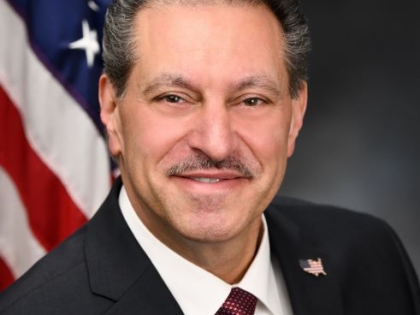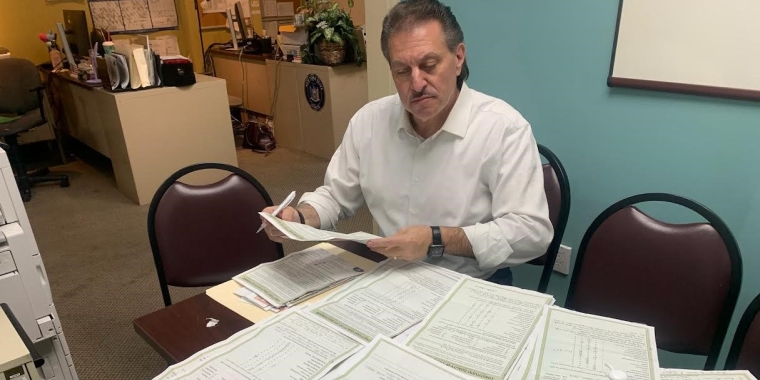
Release: Addabbo Joins Senate Colleagues in Passing Wide Variety of Bills to Address Criminal Behavior in New York State
July 2, 2015
Queens, NY (June 30, 2015) Over the last few weeks of the legislative session, NYS Senator Joseph P. Addabbo, Jr. voted with his Senate colleagues to approve a wide selection of bills to crack down on serious criminal behavior in New York State – ranging from drug activity, to dangerous driving, to assaulting people based on the kind of work they do, to sexual assault and stalking. While most of the bills remain under review by the State Assembly, Addabbo hopes that they will see additional legislative action at a later date.
“The types of crimes committed in New York State are as different as the offenders who commit them and the people they attempt to victimize,” said Addabbo. “But there is one common thread in our response as a government: we need to take steps to keep all New Yorkers as safe and healthy as possible in their homes, their neighborhoods, their local streets, and in their working lives. Sometimes that means raising penalties for crimes to try to send a message to offenders and to potentially prevent the criminal behavior from occurring in the first place.”
The following is a round-up, by criminal issue area, of bills that Addabbo recently supported and voted to approve in the State Senate:
Crimes Against Specific Workers: A bill (S.2251) co-sponsored by Addabbo, would increase the penalty for assaulting a utility worker in light of evidence that these employees are becoming more susceptible to assault and aggressive acts, including shootings and stabbings. Other bills would provide greater protections for emergency medical service paramedics and technicians who are attacked in the course of their duties (S.4839), and increase penalties for assaulting transit agency train or bus station customer assistants, maintenance personnel, cleaners and janitors (S.1451). Another bill (S.1457) would impose a penalty as stringent as life without parole for offenders who have previously been convicted of two violent felony offenses and then assault a police officer. S.4133 seeks to provide greater penalties for groups of three or more offenders who injure on-duty police officers or peace officers who are working at protest demonstrations or other events in public places.
Sexual and Stalking Crimes: Given the ongoing growth and sophistication of technological equipment, S.1291 updates existing law to create sanctions for stalking another person through technological means, which could include the use of cell phones, caller identification devices, cameras, global positioning systems (GPS), and wiretapping. Another bill (S.4504) would raise the punishment for rape in the first degree from a Class B felony carrying a sentence of up to 25 years to a penalty of life in prison without parole. S.1060 would prevent sex offenders from attempting to legally change their names while in prison or on parole and probation, which some criminals have done in an effort to achieve anonymity and hide their criminal behavior.
Fighting Drug Abuse: Legislation (S.100) that Addabbo co-sponsors would make the possession of 50 or more individual packages of heroin presumptive evidence that the person is planning to sell it, constituting a Class B felony. Other heroin-related bills include a measure (S.4163) to hold drug dealers accountable for murder when a person they have provided with heroin dies as a result, and a proposal (S.608) that would clarify state law to make it clear that it is illegal to transport heroin, as well as to sell or possess it. S.4177 expands the legal definition of a “major trafficker” to make it easier to apprehend big drug dealers, and another bill (S.4023) would create a new felony offense for selling drugs within 1,000 feet of a substance abuse treatment center.
Ensuring Safer Streets: Legislation (S.3324) which creates the new crime of “dangerous driving” in varying degrees of severity is targeted towards those whose behind-the-wheel behavior causes injury or death to others with repeated disregard for the rules of the road – including those who drive without licenses or with suspended driving privileges. A bill (S.3508) would strengthen penalties for unlawfully fleeing from a police officer in a motor vehicle in hopes of preventing accidents associated with car chases, and S.404 would further crack down on criminal drivers who kill others with their cars and have been previously convicted of driving under the influence of alcohol or drugs (whether DUI, DWI, DWAI) three times in the previous 10 years.
Protecting Our Neighborhoods: To keep violent felony offenders off the streets for longer periods of time, the Parole Board would be able to reconsider denied parole applications for these highly dangerous criminals within 60 months, instead of the current 24 months (S.1483). Another bill (S.497) proposes to classify some gang assaults as hate crimes, thereby increasing the penalties, and another piece of legislation (S.1340) would increase sentencing sanctions for offenders who have been persistently convicted of low-level misdemeanor or felony crimes over a period of 10 years.
“All of these bills, in different ways, represent important goals of keeping law-abiding New Yorkers safe from criminals who want to poison them with drugs, run them down on their community streets, subject them to physical and sexual assault, and target them simply for the nature of the work they have chosen as a career,” said Addabbo. “I am hopeful that at least some of these proposals will receive the consideration they deserve in the future.”
Share this Article or Press Release
Newsroom
Go to Newsroom